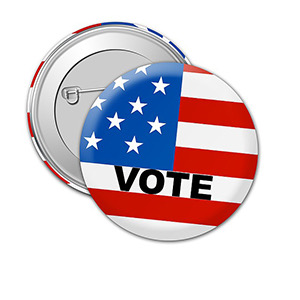Q3 2016 – Market Commentary
As expected in a presidential election year, US politics continue to dominate the headlines. As Canadian investors, many are wondering what the implications will be.
The powerful economic ties between the US and Canada are undeniable, and so we focus this edition of the market commentary on exactly that – how markets have historically behaved during US election years and what we can expect to happen in the markets after the votes are in – both over the immediate and long term.
We will also be busting some common myths, which should ease any concerns you may be having during the endless feed of alarming media headlines we’ve all been reading.
Common Election Myths
“Election years are bad for equity markets.”
- While there may ostensibly be an increase in market uncertainty leading up to the US elections, historical numbers show otherwise. In fact, from 1980-2012, market performance in the weeks leading up to the election date was higher (3.0% vs 2.0%) than in the same time period for non-election years (as per Bloomberg, excluding 2008).
“Election years are volatile.”
- Only 2008 showed more volatility among election years versus the average of all other years, but we know that 2008 was anything but average for the economy, and these results are better attribute to the Global Financial Crisis than the election. The good news is, volatility has been below the long-term average so far in 2016.
“Republican presidents are better for stocks.”
- While US equities have historically performed better under a Democratic president, these results are not necessarily dependent. Market movements over short periods are random, and the effects of policy change can take much longer than a presidential term to realize (and yes, four years is short term when looking at investments) so there is often a lot of overlap, or just plain luck. The bottom line is, neither party is better, or worse, for equities over the long term.
Considerations for North American Sectors & Canadian Investors
Trade
- While both candidates are against the TPP to a certain extent, Trump has also threatened to eliminate NAFTA, though there is a lot of question around how much authority the President has to achieve this. As a large majority of Canada’s exports end up in the US, some say that a Trump victory may be less favourable for the Canadian GDP, in particular with companies in the energy, materials, and industrial sectors.
Interest Rates
- Clinton’s proposed modest budget deficits and fiscal spending are not likely to alter interest rates significantly. On the other hand, Trump’s sizable deficit proposals and trade restrictions could put upwards pressure on US rates.
Energy
- While both opponents have differing positions on US oil prices, the key issues for investors continue to be supply and demand levels, and the innovative ideas that will redefine the future of the industry.
Conclusion
While the election hype should not be overlooked, the economic effects will likely be much less consequential than the media has us believing. Regardless of the outcome, it’s important to remember that while the President can impact foreign policy and trade, the Senate sets the pace on taxes, laws affecting business, and other issues of interest to investors.
What does drive market performance? Business cycles, interest rates, corporate earnings, and most importantly for you – a solid and diversified long-term investment plan.
All the best,
Sabrina Beaudoin, B.Sc, CFP, TEP
Trust & Estate Planning Specialist at Ciccone McKay Financial Group
P.S. Financial planning is a long-term endeavor and plays a key role in many of life’s major decisions. Building a strong relationship with the right advisor could be the key to achieving your financial goals. Read more in “The right fit”, pg. 9 of the enclosed Solutions magazine.

